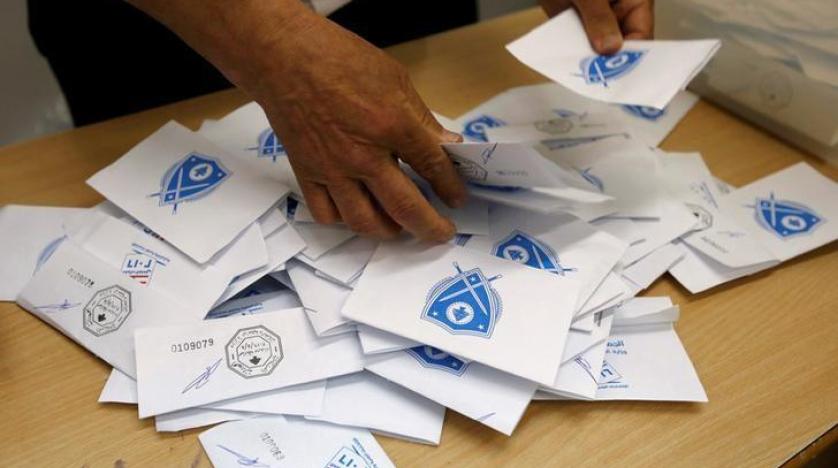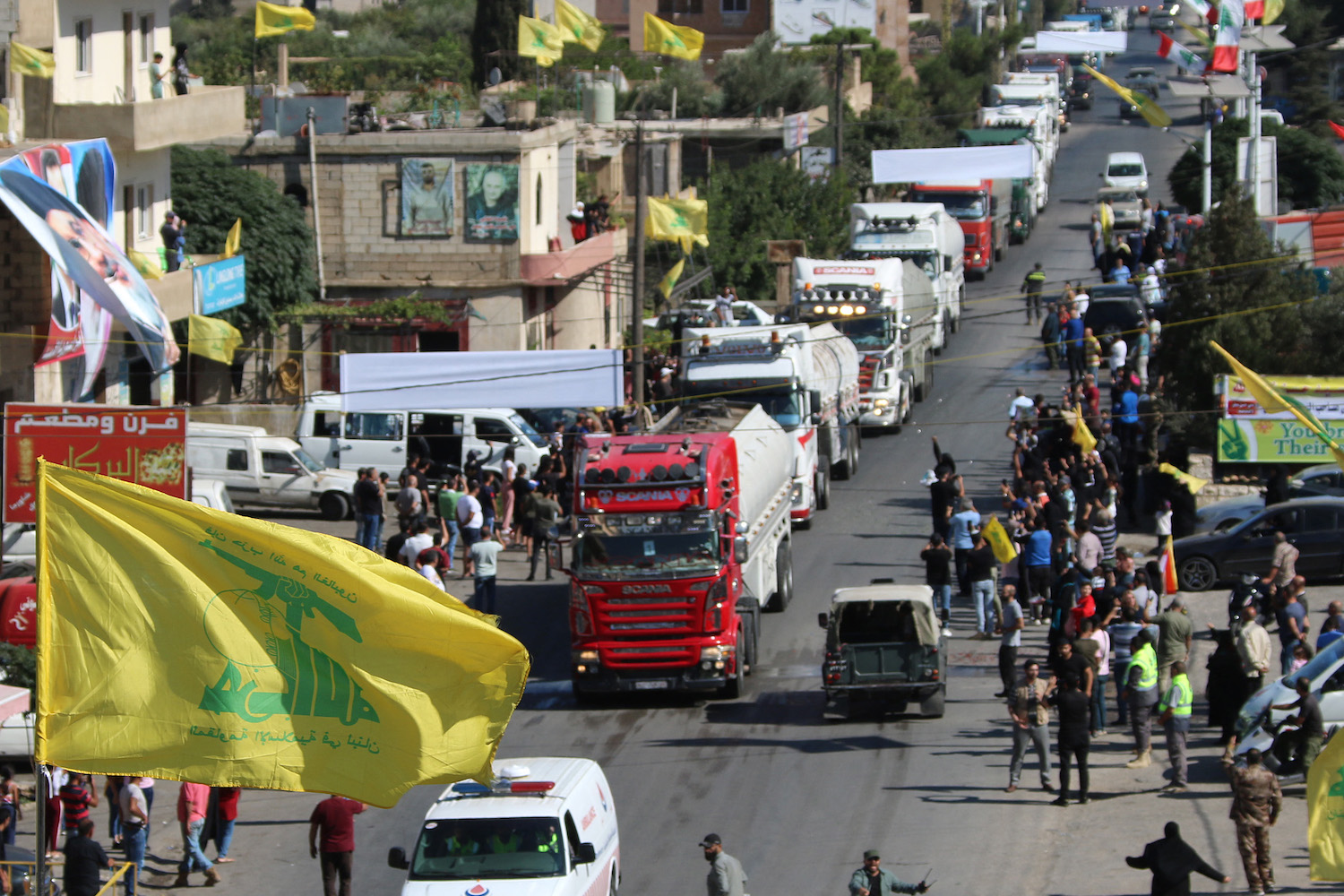
سجعان قزي
@AzziSejean
أخيرًا بَقّهَا السيد حسن نصرالله: "الجنوبُ والبقاعُ والشمالُ وعكّار أطرافٌ تَـمَّ إلحاقُها بلبنانَ الكبير عامَ 1920" (09 أيار 2022). لكنَّ سماحتَه تناسى أمرين: الأوّل أنَّ هذه المناطقَ استُعيدَت ولم يَتِم السطوُ عليها وإلحاقُها بالقوّة بلبنان. والثاني، وهو سابقٌ ومُتمِّمٌ للأوّل: أنَّ المجلسَ التمثيليَّ اللبنانيَّ، المتعدِّدَ الطوائفِ المسيحيّةِ والإسلاميّةِ، اتّخذَ في أيّار 1919 قرارًا طالبَ به مؤتمرَ الصُلحِ المنعَقِدَ في باريس "الاعترافَ باستقلالِ لبنان في حدودِه الطبيعيّة".
إنَّ التشكيكَ بوِحدةِ الأمّةِ اللبنانيّة يُوحي بأنَّ الكِيانَ اللبنانيَّ مصطنَعٌ ومركَّبٌ وفاقدُ الشرعيّةِ التاريخيّة ومُحلَّلٌ تفكيكُه. نَفهم الآنَ أكثرَ لماذا يَرفضُ حزبُ الله وسوريا ترسيمَ الحدودِ اللبنانيّةِ/السوريّةِ وضبطَها. إذا كان الأمرُ كذلك، لِــمَ ولِمَن استُشِهدَ أطيبُ شبابِ الجنوبِ والبقاع؟ وما قيمةُ مقاومتِك، يا سيد حسن، لتحريرِ الجَنوب والبقاع الغربي؟ وما لكَ ولنا بعدُ بمزارعَ شِبعا وتِلالِ كفرشوبا؟ وما لكَ ولنا بمربّعاتِ النفطِ والغاز في بحرِ الجَنوب؟ أَرْجِعْ هذه المناطق إلى سوريا لتَتمتّع بربوعِ الشام ونسيمِ البِردَوْني، ودَعْ سوريا تُقاوم في سبيلِها مثلما قاومَت لاسترجاعِ الجولان.
وطنية – دان “لقاء الجمهورية” في بيان، “جريمة اغتيال المراسلة الإعلامية في قناة الجزيرة الشهيدة شيرين أبو عاقلة عن سابق تصور وتصميم …

By Najia Houssari -- arabnews.com -- BEIRUT: With Lebanon’s crucial parliamentary elections on Sunday expected to go down to the wire, candidates and party supporters have been accused of trying to buy their way to victory by offering cash bribes to undecided voters. A Shiite voter in Beirut’s second constituency told Arab News that he had been offered $300 if he and his family agreed to vote for a particular businessman. The man, who asked to be identified only as Mohammed, said: “Supporters campaigning for their parties call me every day to ask who I will be voting for. I have no idea how they got my number. Some offer ration cards, others money, to either vote for them, or even boycott the elections or cast a blank ballot.” Mohammed, who has no links with the Amal Movement or Hezbollah, said he is unlikely to vote. “All the parties in power had the opportunity to fulfill their promises, but they have left their people mired in their misery. We will not re-elect them.”
Electoral bribery has long been a problem in Lebanon, despite laws banning the practice, but has become more widespread and visible with the collapse of the national currency and decline in living conditions. Now, if rumors from the money exchange black market are to be believed, the exchange rate will drop ahead of the elections as parties attempt to buy votes using US currency. One money changer, who declined to be named, told Arab News: “Electoral spending is expected to rise during the next few days as parties attempt to buy the largest number of votes, through direct bribes.” People in Beirut have reported that money changers have been stopping passers-by in the street to ask if they want to exchange their dollars.

By Doreen AbiRaad -- ncregister.com -- BEIRUT — Amid the catastrophic socioeconomic collapse of their country, Lebanese are gearing up for legislative elections May 15. Lebanon has been going through an unprecedented economic crisis, labeled a “deliberate depression” by the World Bank and one of the worst in the history of the world since 1850. Parliamentary elections take place every four years in Lebanon for the 128-seat Legislature, which is equally divided between Christians and Muslims. Around 40% of Lebanon’s population is Christian. This year’s vote consists of a total of 103 electoral lists — divided among 15 districts — with 1,044 parliamentary candidates vying for the 128 seats, 20% more than in the last election in 2018. Of the 103 registered lists, around 30 are those of candidates resulting from a protest movement, a sign that such hopefuls have failed to form a united front.
Some of the participants of the protest movement begun in October 2019 decided to run for this year's parliamentary elections, mostly as independents, opposing the political status quo. Observers told the Register this is a pivotal election for the future of the country — and its Christians. “A great deal is at stake for Lebanon’s Christians in these parliamentary elections — nothing less than the very existence of a free, open and prosperous Lebanon, harboring a secure and contented Christian community,” Habib Malik, retired associate professor of history at the Lebanese American University, said. Pointing to the “colossal historic catastrophe” the country is witnessing, Malik noted that “the gradual and systematic erosion of their finances, their jobs, their numbers, their livelihoods and their future prospects only begins to outline the contours of this unprecedented calamity for Lebanon’s Christians.” “Christians do need to go out on election day and cast their votes for any candidates opposed to the vampirical mafiocracy that defrauded the people and that continues to suck their blood,” Malik stressed.
Mismanagement and Corruption Blamed
Khazen History


Historical Feature:
Churches and Monasteries of the Khazen family

St. Anthony of Padua Church in Ballouneh
Mar Abda Church in Bakaatit Kanaan
Saint Michael Church in Bkaatouta
Saint Therese Church in Qolayaat
Saint Simeon Stylites (مار سمعان العامودي) Church In Ajaltoun
Virgin Mary Church (سيدة المعونات) in Sheilé
Assumption of Mary Church in Ballouneh
1 - The sword of the Maronite Prince
2 - LES KHAZEN CONSULS DE FRANCE
3 - LES MARONITES & LES KHAZEN
4 - LES MAAN & LES KHAZEN
5 - ORIGINE DE LA FAMILLE
Population Movements to Keserwan - The Khazens and The Maans
ما جاء عن الثورة في المقاطعة الكسروانية
ثورة أهالي كسروان على المشايخ الخوازنة وأسبابها
Origins of the "Prince of Maronite" Title
Growing diversity: the Khazin sheiks and the clergy in the first decades of the 18th century
Historical Members:
Barbar Beik El Khazen [English]
Patriach Toubia Kaiss El Khazen(Biography & Life Part1 Part2) (Arabic)
Patriach Youssef Dargham El Khazen (Cont'd)
Cheikh Bishara Jafal El Khazen
Patriarch Youssef Raji El Khazen
The Martyrs Cheikh Philippe & Cheikh Farid El Khazen
Cheikh Nawfal El Khazen (Consul De France)
Cheikh Hossun El Khazen (Consul De France)
Cheikh Abou-Nawfal El Khazen (Consul De France)
Cheikh Francis Abee Nader & his son Yousef
Cheikh Abou-Kanso El Khazen (Consul De France)
Cheikh Abou Nader El Khazen
Cheikh Chafic El Khazen
Cheikh Keserwan El Khazen
Cheikh Serhal El Khazen [English]
Cheikh Rafiq El Khazen [English]
Cheikh Hanna El Khazen
Cheikha Arzi El Khazen
Marie El Khazen